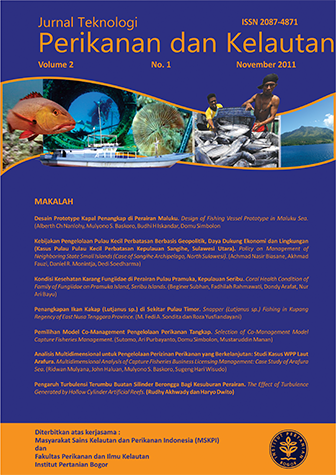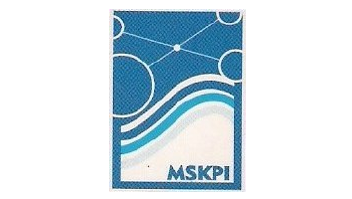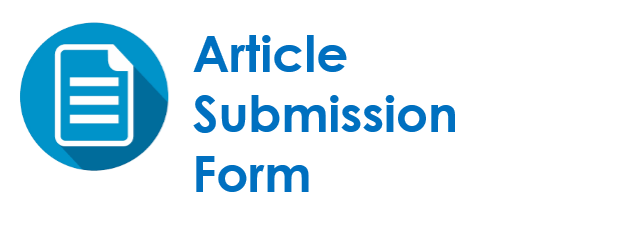ANALISIS MULTIDIMENSIONAL UNTUK PENGELOLAAN PERIZINAN PERIKANAN YANG BERKELANJUTAN : STUDI KASUS WPP LAUT ARAFURA
Abstract
Fishing license, as a tool of fisheries management, is one of the popular instrument to control fish resources utilization. The purposes of fishing license for government are : (1) to optimalization of fish resources utilitization; (2) to maintain fish resources sustainability; and (3) to gain the economic benefit as government revenue. As part of fisheries management, fishing license affect to many aspects of fisheries as ecology, economic, technology, social, and ethic. Fishing license for large fisheries scale in Arafura Sea play an important role in Indonesian fisheries as Goverment issued 1072 fishing license or almost 25% of total license issued for all Indonesian waters. Unfortunatelly, Arafura Sea faces many problem and issues like overfishing, IUU fishing, destructive of fish habitat and environment that threaten the sustainability of fisheries. So it’s important to know the sustainability state of Arafura Sea in present to determine the best fishing license policy. The analysis of RAPFISH for sustainability of fisheries (including Leverage and Monte Carlo analysis) by major type of fisheries give some results as : (1) the fisheries of Arafura Sea is sustainable enough with score 53,86; (2) squid jigging, bottom longline, and gillnet fisheries are sustainable enough; but fish net and shrimp net are less sustainable; (3) the ecological dimension is good sustainable with score 72,43; but the ethic dimension is less sustainable with score 37,26. The leverage analysis shows the attributes which give the highest influence to each dimensions as: (1) size of fish on ecology dimension; (2) sector employment on economic dimension; (3) FAD (fish attracting devices) using and gear selectivity on technology dimension; (4) education level on social dimension; and (5) just management on ethic dimension. It’s recommended for Arafura Sea fisheries development to promote the sustainability fishing gears like squid jigging, bottom longline, and gillnet fisheries.




















